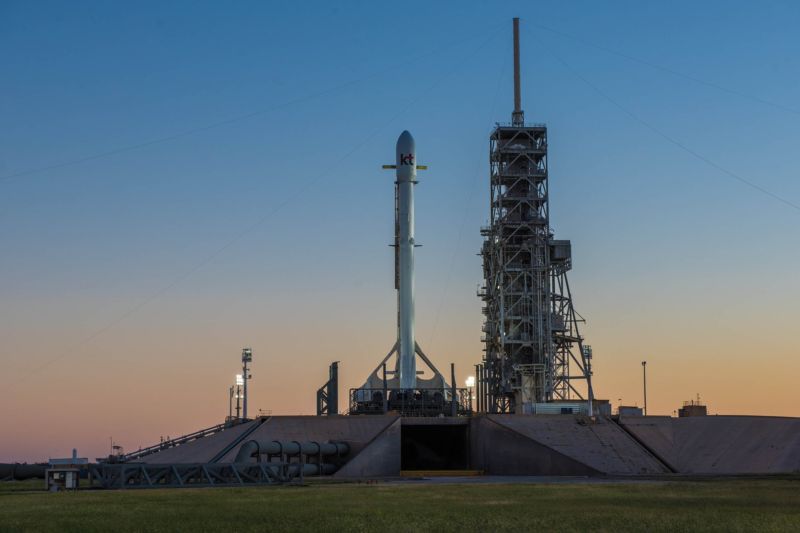
3:50pm ET Update: Facing no weather or technical issues, SpaceX launched its Falcon 9 rocket at the opening of its window on Monday afternoon. The first stage delivered its payload to orbit and returned to Earth, albeit a bit fiery, eight minutes later. Meanwhile, the second stage appeared to be well on its way to delivering the Koreasat-5A to its geostationary orbit.
Original post: SpaceX has launched, on average, about 1.5 times per month during this year. From that perspective, the company's 16th launch of 2017 may not seem all that spectacular. After all, sending something like the Koreasat-5A commercial communications satellite to a geostationary transfer orbit is becoming old hat for the new space company.
However, Monday's launch attempt is significant because it would double SpaceX's total number of launches for any given year, which was eight. Moreover, it is yet another commercial launch for SpaceX, which before 2017 had launched mostly government missions for NASA and NOAA. But this year, 11 of 16 SpaceX launches have been for private companies or foreign governments.
The launch window for Monday's attempt from Kennedy Space Center opens at 3:34pm ET and will remain open until 5:58pm ET. The webcast below should begin about 15 minutes before the launch window opens. After delivering the satellite into orbit, the Falcon 9 rocket's first stage will attempt a landing on the “Of Course I Still Love You” drone ship at just under 9 minutes after launch. The satellite will be deployed about 36 minutes after liftoff.
Following Monday's attempt, it is likely that SpaceX will launch two or three additional missions in 2017, which would bring the company's tally for the year to 19 missions. That total would be one shy of the company's total for 2014, 2015, and 2016 combined.
reader comments
183